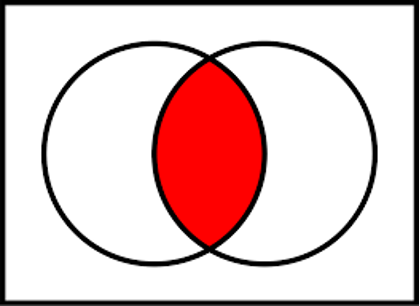What's Your Leadership Love Language?
Nov 14, 2023
In 1992, a book came out that has sold over 20 million copies, been translated into 40 languages, and has spent seven years on the New York Times bestseller list. It’s called The Five Love Languages and focuses on the idea that we each have a primary way (i.e., language) that we want to give and receive love from others. The five love languages are acts of service, physical touch, receiving gifts, quality time, and words of affirmation.
This book’s phenomenal insight has helped lots of marriages, and the author—Gary Chapman—has even taken a stab at looking at how we show and receive appreciation in the workplace.
But what about leadership love languages?
I think every leader has specific qualities that he needs from his direct reports. Out of the hundreds of leadership qualities available, there are always a few that stand out and speak most directly to you.
Your Leadership Love Language
There are hundreds of leadership qualities: intuitive learners, active listeners, people who can say “no,” people who can inspire others, devil’s advocates, obstacle overcomers, loyalty, etc. But guess what? Some leadership skills are more important for you as a leader to be surrounded by than others. In other words, you have a “leadership love language” that speaks more effectively to you than others.
My theory is that every executive needs only a certain few leadership qualities in those reporting to them. I am way beyond staffing to your weakness as a leader. I am talking about those qualities that bring out the best leader in you.
I was recently meeting with a CEO client discussing this very idea. We were evaluating and ranking his direct reports against his leadership love languages. We began by identifying those qualities he treasured most in those reporting to him. The first one took me by surprise—“Eat raw meat!” In other words, he needs action-oriented, courageous people who, when they hear a new challenge are chomping at the bit to say, “Give me that!” He would have gotten along well with Kentucky basketball coach John Calipari, who said, “I need people who look at adversity as a challenge and failure as a learning opportunity.” Maybe one of them could work for the other.
On the other hand, for years Google has looked at “pure intelligence”—SAT scores. They feel that they can teach the rest, so long as they have intelligent leaders. Though in Andy Dwyer's case test scores weren't enough to get the job.
As for me, one quality I need in my partners and employees is “pro-active communicators with a fast learning curve.” My world is varied and fast moving enough that I need people who can keep up and, when they can’t, just let me know immediately rather than try to avoid that conversation. That is one of my leadership love languages. I value that over pure raw intelligence, courage, great people skills, and other possible leadership love languages.
What about you? Think of it as a Venn diagram. On the left are “Direct reports that create great results.” On the right are “Direct reports that are easy for me to work with.” In the red section in the middle are people who fill both categories. That’s what we’re looking for.

Remember—your Venn diagram will be unique. This isn’t one size fits all. Your leadership love languages will be different from those of your partners and peers in other companies because the list of possibilities is so vast, and we are individualized people. Do you need five-year forecasters or great pivoters? People you can laugh with or people who are always on time? The possibilities are endless.
Finally, keep in mind that you don’t always know exactly what you need. Consider the storyline of the 2015 movie The Intern.
Anne Hathaway’s character, Jules, takes on Ben, a 70-year-old intern, played by Robert Deniro. As the movie opens, Jules is a highly skilled and successful CEO of an e-commerce company who just needs people to keep up. A senior-citizen intern doesn’t fit the bill at all.
As the movie reveals, however, Ben is actually exactly what Jules needs. He is experienced, professional, offers outside perspective, and is able to transfer his strengths to those around him. He is the steadying force that Jules desperately needs. In the end, Ben fit into the middle of the Venn diagram after all.
As a senior leader, your effectiveness is usually decided by your direct reports. Sure, you need great people with chemistry, character, and competence. But you also need direct reports who speak your leadership love language to fuel you to be the best leader you can be. Therefore, you must surround yourself with people that will help you make great decisions and achieve excellent results.
Want to receive Steve's articles in your inbox?
Join 14,000+ leaders who start their week with clarity. Every Tuesday, strategist and advisor Steve Graves shares short, practical reflections from 30+ years guiding CEOs, founders, and entrepreneurs toward flourishing in both business and life.
Free weekly email. Unsubscribe anytime.

